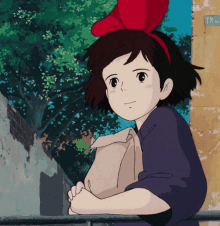We tend to take water for granted. We leave the tap on, assuming drinking water will always be there for us. However, according to the Bureau of Reclamation at California-Great Basin, although water covers around 71% of the earth's surface, only 3% of it is freshwater, and only around 1% is available for human use. Now with climate change, pollution, and overuse making things worse, the world is facing a serious freshwater crisis.
Let us slide into your dms 🥰
Get notified of top trending articles like this one every week! (we won't spam you)The Problem: What happens to water?
Photo by Brendan O'Donnell on Unsplash
1. Climate Change:
As the planet heats up, the water cycle gets thrown off. Glaciers are melting faster than they can be replaced, rain patterns are changing, and droughts are lasting longer and hitting harder. This messes with rivers, lakes, and underground water that we depend on for drinking, farming, and just getting by.
2. Overuse:
About 70% of the world’s freshwater is used for farming. A majority of it is going to grow crops and raise animals, and the demand for water is just too high. Add in all the water used by cities and industries, and it’s clear that we're using more than the planet can keep up with.
3. Pollution:
Chemicals from factories, plastic waste, and oil spills all end up in our water. But it’s not just about having water—it has to be safe to drink. Pollution is making clean water harder to come by, and it’s not just about whether we have water, but whether it's clean enough to use.

Take the Quiz: What Candle Scent Matches Your Overall Aesthetic?
Halloween is just around the corner. It's time to light that candle. Take this quiz and find out what candle scent suits you best.
Why Does It Matter?
Photo by yusril alim on Unsplash
Water isn’t a luxury—it’s something we all need to survive. When there isn’t enough, crops die, food becomes harder to find, and diseases spread more easily. According to the United Nations, around 2.2 billion people still don’t have access to safe, clean drinking water.
Not everyone feels the effects of this crisis the same way. Communities already struggling with poverty or poor infrastructure are the hardest hit. They don’t have enough clean water and don’t always have the resources to fix it. In some places, water shortages have even caused fights between neighboring areas that share the same rivers or lakes.
What Can Be Done?
It’s easy to feel overwhelmed by something as big as a global water crisis, but there is still hope. Real solutions exist, and they don’t just rely on scientists or world leaders. From governments to everyday people, everyone has a way to contribute. 
Photo by Eric Brehm on Unsplash
1. Smarter Agriculture
A lot of the world’s water goes into farming, but not always efficiently. Switching to drip irrigation, which is a system that slowly drips water over plants, saves water and nutrients by minimizing runoff and evaporation. Supporting eco-friendly farms also helps farmers pay for expensive, but eco-friendly systems.
2. Innovations
Innovations like water recycling systems and desalination plants (which turn seawater into drinking water) are already being used in some countries. They’re not perfect yet, but they have real potential if they’re made affordable and more available.
3. Natural Ecosystems
Forests, wetlands, and watersheds are like nature’s water filters—they help clean and store fresh water. Keeping these places safe and intact is one of the best ways to make sure we have clean water in the future.
4. Government and Policy
Governments need to step up by improving water infrastructure, passing stricter anti-pollution laws, and making sure everyone has fair access to clean water. Water doesn’t follow city or state lines, so it’s important for different areas to work together through the differences.
5. What Can We Do?
You don’t have to be a politician to make an impact. Small things we do every day, like turning off the tap while brushing our teeth or spreading the word on social media, really add up. You can also support organizations fighting for clean water or talk to local leaders about the issue.

Photo by Karla Zarza on Unsplash
Conclusion:
We often don’t think twice about water, but with climate change, pollution, and overuse, it's becoming a bigger problem. The good news is that we can still make a difference. Smarter farming, new tech, protecting natural spaces, and stronger policies can all help.
Small actions, like turning off the tap and speaking up, really do add up. The choices we make now will affect our future, so it's important to act today.


















